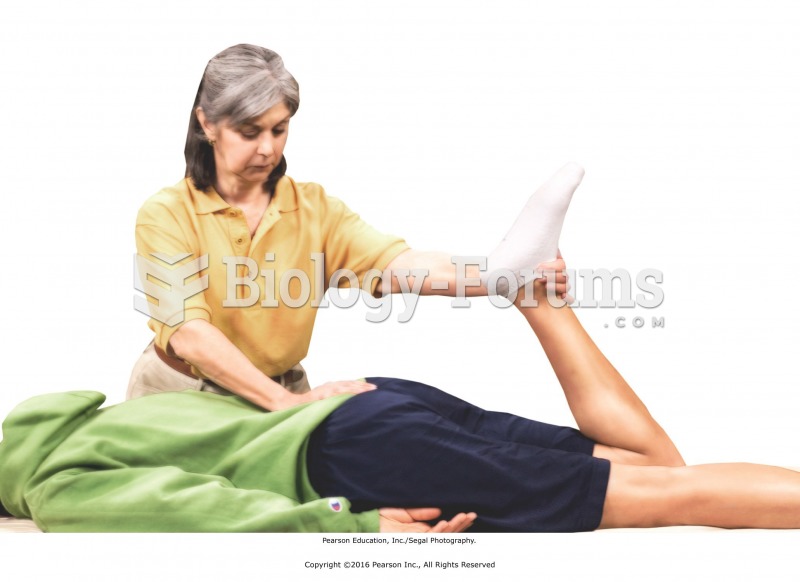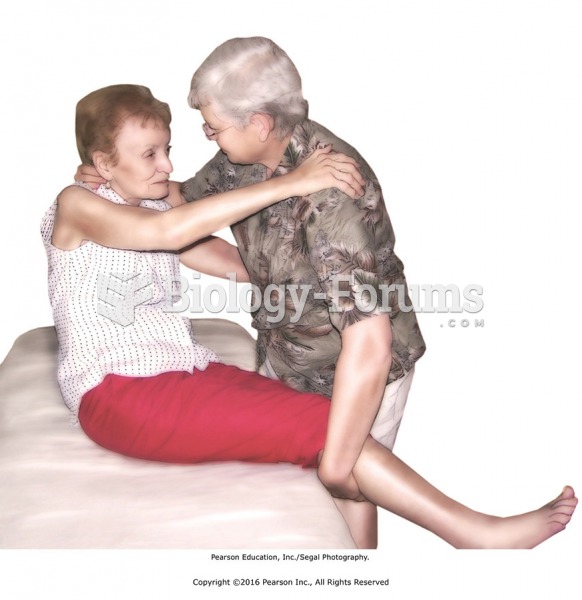|
|
|
Did you know?
Medication errors are more common among seriously ill patients than with those with minor conditions.
Did you know?
Asthma cases in Americans are about 75% higher today than they were in 1980.
Did you know?
Bacteria have flourished on the earth for over three billion years. They were the first life forms on the planet.
Did you know?
Addicts to opiates often avoid treatment because they are afraid of withdrawal. Though unpleasant, with proper management, withdrawal is rarely fatal and passes relatively quickly.
Did you know?
Signs and symptoms of a drug overdose include losing consciousness, fever or sweating, breathing problems, abnormal pulse, and changes in skin color.


![Chickenpox rash. (Centers for Disease Control and Prevention [CDC]/Ann Cain)](https://biology-forums.com/gallery/30/medium_548020_08_06_17_10_52_37_306981954.jpeg)




